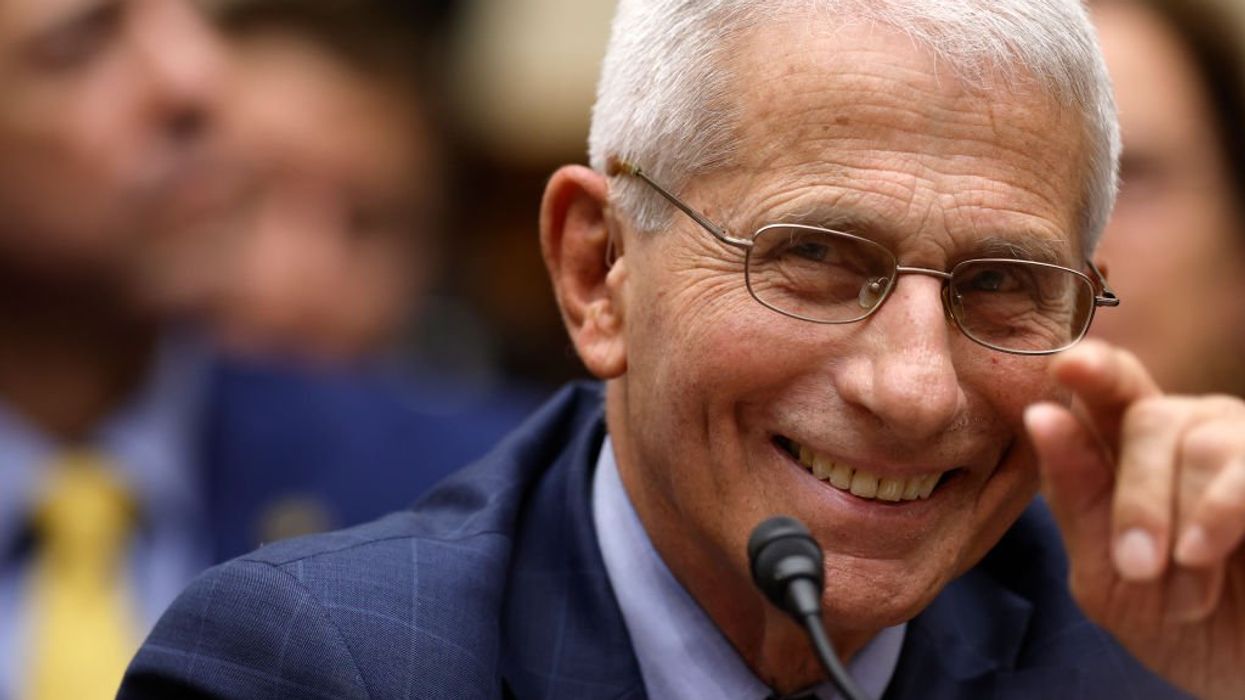© 2024 Blaze Media LLC. All rights reserved.
Washington Post Editor: ‘Is It Really in Voters' Best Interests to Disqualify Candidates... Because of a Corruption Scandal or Two?\
March 24, 2014
A top editor at the newspaper famous for exposing the Watergate scandal argued that the public doesn't and perhaps shouldn't have a negative view of public corruption by politicians.
 District of Columbia Mayor Vincent Gray during the State of the District address at Kelly Miller Middle School Tuesday, March 11, 2014, in Washington. Gray launched his State of the District speech by addressing a campaign-fundraising scandal, telling residents that he has not broken the law. (AP Photo/ Evan Vucci)
District of Columbia Mayor Vincent Gray during the State of the District address at Kelly Miller Middle School Tuesday, March 11, 2014, in Washington. Gray launched his State of the District speech by addressing a campaign-fundraising scandal, telling residents that he has not broken the law. (AP Photo/ Evan Vucci)
Hilary Krieger, editor of the Washington Post's editorial department, began with Washington D.C Mayor Vincent Gray's “shadown campaign” scandal and went onto discuss New Jersey Gov. Chris Chrstie's “Bridgegate” scandal.
“Is it really in voters’ best interests to disqualify candidates, no matter the good they’ve done, because of a corruption scandal or two?” Krieger asked in the column carrying a headline, “Should a little corruption matter to voters?”
“Most voters think it isn’t. In fact, they’re often willing to overlook some missteps if a political leader has otherwise furthered the public good, especially if that leader is well-liked or the other candidates seem worse,” she continued. “Which is why Gray just might win the Democratic mayoral primary on April 1 — and why Republican New Jersey Gov. Chris Christie might still have a good shot at the party’s 2016 presidential nomination.”
A donor to Mayor Gray's campaign recently struck a plea deal with federal prosecutors of setting up a $650,000 illegal fund to help Gray get elected in 2010. The mayor is expected to be indicted. Meanwhile, a federal and state investigation continues into Christie's staff shutting down part of heavily traveled bridge and causing traffic jams to get revenge on a political opponent.
The Post writer noted that under Gray, education and the economy have improved for Washington and praised Christie for shoring up spending on pensions in New Jersey and handling the fallout of Hurricane Sandy.
She says there is precedent, citing highly likable presidents Ronald Reagan, who fended off Iran Contra, and Bill Clinton, who survived a number of scandals, even weathering impeachment.
A University of Houston study of 250 members of Congress involved in corruption scandals, found that 40 percent lost their seats, meaning the decisive majority survived. Further, in the last two decades, the Justice Department's prosecution of public corruption cases is down 20 percent, she wrote.
“Voters’ overlooking corruption clearly has some serious costs — encouraging even worse behavior and eroding trust in government, for starters,” she admitted. “But a single-minded focus on rooting out corruption can also have unintended negative consequences — for instance, the layers of regulations and mandated disclosures, such as releasing tax forms, can trip up even capable public servants.”
She went on to refer to Health and Human Services Secretary Kathleen Sebelius's hapless handling of Obamacare as one example for ignoring lapses in individuals.
“Consider Tom Daschle. The former Senate majority leader had to withdraw from consideration as secretary of health and human services after he disclosed that he hadn’t paid taxes on a car-and-driver service provided by a friend and business associate,” Krieger wrote.
“He also had around $80,000 in untaxed consulting income and took some charitable deductions for organizations that didn’t qualify. Watching the problems that have plagued the rollout of the Affordable Care Act under Health and Human Services Secretary Kathleen Sebelius, it’s hard to think that the country has been better off for having disqualified Daschle from service.”
Want to leave a tip?
We answer to you. Help keep our content free of advertisers and big tech censorship by leaving a tip today.
Want to join the conversation?
Already a subscriber?
more stories
Sign up for the Blaze newsletter
By signing up, you agree to our Privacy Policy and Terms of Use, and agree to receive content that may sometimes include advertisements. You may opt out at any time.
© 2024 Blaze Media LLC. All rights reserved.
Get the stories that matter most delivered directly to your inbox.
By signing up, you agree to our Privacy Policy and Terms of Use, and agree to receive content that may sometimes include advertisements. You may opt out at any time.


